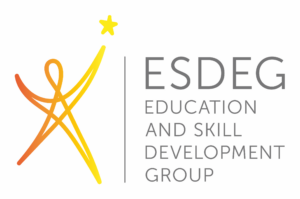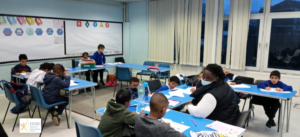Cost of the Child 2022
According to Child Poverty Action Group (CPAG’s) recent report, ‘Families in 2022 are facing the greatest threat to their living standards in living memory.’ Calculations for the current economic climate show that the cost across 18 years to raise a child is nearly £70,000 for a couple and over £113,000 for a lone parent to cover basic costs. When accounting for childcare and rent, these figures rise to over £157,000 for a couple and £208,735 for a lone parent across the same time period of 0-18 (3).
Childcare alone accounts for 60 per cent of the costs of raising a child for a couple working full time, an increase of 20 percent over the last 10 years (3). A nonworking parent or couple will receive less than half of those costs covered by benefits and even a lone parent earning a median wage would only earn 88% of what is needed to make ends meet (3). Furthermore, the structure of childcare support and the lack of provision for 0-1 year-olds functions as a disincentive even up until the age of 3 making it challenging for lone parents to increase their earnings through higher paying jobs because they will spend too much of their income on childcare costs in their child’s early years (5).
One positive of note is the increase over several years of the ‘national living wage’ which the chancellor has recently confirmed to be raised in April 2023 by 10.1 per cent becoming £10.42 for over 23-year-olds (National Minimum Wage and National Living Wage rates – GOV.UK (www.gov.uk)) as well as an uprate in benefits by the same percentage (Chancellor delivers plan for stability, growth and public services – GOV.UK (www.gov.uk)).
However, these benefits are mitigated by the existence of the benefit cap which limits the impact and real take home increase these other changes will have (10). The report offers the example of ‘[a] couple supporting two children and living in private accommodation, for example, is now over £350 a week short of meeting their needs, an increase since 2016 of nearly 60 per cent. This is the result of the benefit cap biting,’ a reality even worse for children with a third child, but unable to access further support because of the two-child limit (10).
Specific to London families, 4in10 has shown that housing and food costs are hitting London families especially hard (Cost of Living Crisis & Children in Poverty: London Spotlight). The cost of a child in London is likely to be higher because of increased costs of childcare, housing and food prices.
Overall CPAG’s report shows that not only has the cost-of-living crisis hit families hard, but that this is a long-term deterioration of support over the past decade that has snowballed this winter. For families in London, the challenges are complex and ways of accessing support can be daunting and confusing. For the organisations supporting these families, this report confirms what we already know, families are being squeezed bone dry to keep their children fed and cared for, there’s is nothing left in the tank, but the opportunity to provide targeted support to families both from the charitable and government sector is abundant. Children are worth every penny of investment, but we need to take seriously the need to advocate for systemic change in how we give every child what they need.
Why it's time to end the cycle of sparsity-introducing the 'Stop the Squeeze' campaign
At 4in10, we are very much aware that our network members continue to fight every day to provide high quality, sustainable support to children and families who have been let down by services. Many families find that they are unable to secure a high enough income to meet their basic needs. Our network organisations are on the frontline trying to keep themselves afloat as they provide crucial intervention to children and their families impacted by poverty.
While we are advocates for the sector and exist to support our members, we also are in the fight to end child poverty in London. The response from our local, city-wide and national government to the cost-of-living crisis must be preventative as well as reactive. So, we wanted to raise awareness of a campaign that we believe is a call for the longer term, systemic change our members and their support users require.
Stop the Squeeze is a collaborative campaign working to create a coalition of civil society groups who ask for three clear demands that will benefit society as a whole and move the conversation away from a plaster approach to a robust social security system.

Supporters of Stop the Squeeze are calling on our leaders to provide an emergency package with the following three elements:
- Guarantee of affordable, clean energy for everyone
- Ensure everyone has access to a Living Income
- Reform the tax system with higher taxes on wealth
The aim is to change the conversation in Westminster and the media to get more ambitious policies on the agenda and make real change possible in the longer term. The campaign is led by a core steering group of three organisations: the Economic Change Unit, Tax Justice UK, and the New Economics Foundation. It is supported by a coalition of civil society organisations such as Save the Children and Oxfam, trade unions, and grassroots groups. See here for the current list of supporting organisations. We are encouraging our members to consider supporting or engaging with this initiative and its three demands in whatever way they feel is appropriate.
There are many ways of going about meeting these demands, but the principal is that we move from language of scarcity and overwhelmingly competitive charitable fundraising that pits brilliant charities against one another to a collective, coordinated support system where the gaps are few and far between and the community and voluntary sector in London does not have to continually be in crisis response mode.
We will be co-hosting an event with Children England on 13th December to encourage our members to learn more about why this could be a beneficial campaign to engage with. Crucially, this event will also highlight why we need a longer-term vision for economic change. We will offer some practical tools for members in the children and poverty sector who aren’t economists, but want to challenge short term, zero-sum approaches to government investment. Even if you’re not ready to join the Stop the Squeeze campaign, this event will provide resources to help you advocate for change, whether local or national.
4in10 believes that Stop the Squeeze is an impactful way of using the expertise of economists to hold government to account at all levels in London to make our city a fairer, child-friendly community.
Signing up doesn’t commit any organisations to any actions. But this is an opportunity to show support and engage in particular activities around the campaign’s aims, when it feels appropriate. The Government can and should deliver a response which addresses the long-term structural problems with the economy which underpin this cost-of-living crisis, rather than just offering sticking-plaster solutions.
We understand that you’re not economic experts, we’re not either. But we do believe that the economic system can be made to better support children and families. Child Poverty can be eradicated from London, but we need to work collectively to ensure we build a more equitable city that is inclusive with a security system that supports everyone, especially when they need it most.
For more details and information on how to sign up, go to Stop the Squeeze -A Real Plan for an Affordable Britain.
To book onto our upcoming event, jointly run with Children England, please follow this link.
Indoamerican Refugee and Migrant Organisation
Indoamerican Refugee and Migrant Organisationare advertising a vacancy for a youth worker and mentor in the Latin American Forum
4in10 Newsletter 17.11.22
Read the latest newsletter here.
To get this directly to your inbox every fortnight please do join us.
Spotlight on 4in10 Member Education and Skills Development Group

How are you helping to tackle child poverty in London?
At the Education and Skills Development Group (ESDEG) we strive to alleviate child poverty through education in the London borough of Ealing. We run several programmes that provide support to the children belonging to refugee and deprived communities so that they can perform at par with the rest of their school cohort and enjoy a dignified childhood.
Supplementary Schooling: ESDEG was started to help children from refugee and deprived backgrounds to perform better in school. Around 2005 a bunch of us noticed that the attainment rate for children from refugee families in the Ealing was pretty dismal. Somali children were struggling in school and consistently underachieving, so we started after-school homework clubs. Our tutors not only provide children help with academic subjects in particular English, Mathematics and Science, but also offer a safe space to share their experiences in and about school.
Summer Camps: Over summer and other holidays we team up with other local organisations to organise camps, family fun days, seaside trips, sports and other recreational activities because we realise that some of the parents from deprived backgrounds cannot afford to take their children on holidays and day outs.
Family and Schools Partnership: Our work with children and parents made us realise how much some parents from deprived backgrounds whose first language is not English struggle to communicate with the teachers and school staff. The challenge gets multiplied for parents who were not raised in the British education system. From this stemmed our next service, our Family Support Liaison Officers work as a communication bridge between schools and children and their parents. One of the major issues our liaison officers are working on are school exclusions, both formal and informal. We have also produced a research document based on case studies of exclusion cases among the Somali community in Ealing (report available in our website www.esdeg.org.uk)
Youth Mentoring Project: This project is designed to provide individual and group mentoring to inspire young people; help raise their self-esteem and aspirations; improve their attainment and behaviour; and reduce the likelihood of exclusions, crime and anti-social behaviour. We motivate them to study and succeed in life by looking up to successful role models. Moreover, we equip our mentees with the resilience, emotional intelligence and growth mindset to help them overcome their barriers. Our experienced mentors provide structured and engaging sessions to young people from minority backgrounds, offering guidance, support and encouragement aimed at developing the competence and character of their mentees. Young people often disclose concerns and problems that parents/carers and school staff are not aware of. Our mentors also detect and report any safeguarding concerns and help young people overcome issues of abuse, bullying, radicalisation, neglect etc.
Special Educational Needs and Disability (SEND) Project supports children in Ealing with special educational needs and disabilities (SEND). Our aim is to bridge the gap between families, schools and the Local Authority by working with both the parents and the children to ensure the child is receiving all the support they need for educational success. Our specialised staff focus on identifying the reasonable adjustments a child with SEND may need to reduce the disadvantages they face as well as providing extra encouragement in their learning and support with physical and personal care difficulties.
Tell us something you are excited about?
ESDEG’s integrative therapist has recently launched an initiative which encourages school children to express themselves through art. These exercises have been very effective with children who suffer from anxiety. Children not only express themselves more candidly through colours and pencils, they enjoy the process and are eager to come back for more. Seeing the success of this initiative, our counsellor is planning to expand this to other children as well.
Share with our members something positive about your organisation’s achievement or service?
Last year (2020-2021) we supported over 180 students through our supplementary schooling – helping to raise their academic achievement, self-esteem, and social skills. Over the last seventeen years since ESDEG started, we have seen the children who attended supplementary schools improve their performance in school, secure college places and go on to have successful careers.
What can other network members learn from you or find out more about through you?
ESDEG works with refugee and minority communities, the so-called hard-to-reach target groups. One of the main reasons for our successful outreach is that many of our staff are from minority backgrounds ourselves. Not only do we belong to the same community and speak the same languages, we understand the cultural and religious nuances which enhance communication and our clients feel confidence in our ability to provide them with high quality services.
What would most help you achieve your goals?
Like the other grassroots organisations we are also striving to operate with a limited pot of funding. Added to that is our struggle to secure office and training/meeting spaces for our day to day activities in the Ealing borough of London. The third challenge we face is in recruitment, training and retaining our staff. We feel that we could concentrate on our work a lot better if these administrative issues could be sorted.
Why did you join 4in10? What do you enjoy about being part of the 4in10 network?
To connect with like minded organisations who are working with disadvantaged groups. Also being part of the 4in10 network helps us be part of the collective voice of the sector.


Helping People Through the Cost of Living Crisis - Practical Solutions
Here is a recording of the Webinar which was held on the 18th October called:
Helping people through the cost-of-living crisis: practical solutions
4in10 Newsletter 3.11.22
Read the latest newsletter here.
To get this directly to your inbox every fortnight please do join us.
Gingerbread Job Averts
Gingerbread are advertising for two Vacancies:
Refugee Programme Trainee Assistant Advice Worker & Trainee Assistant General Advice Worker
Sufra Jobs Advert
Sufra are advertising for two Vacancies:
Refugee Programme Trainee Assistant Advice Worker & Trainee Assistant General Advice Worker
If you are interested please click here.



